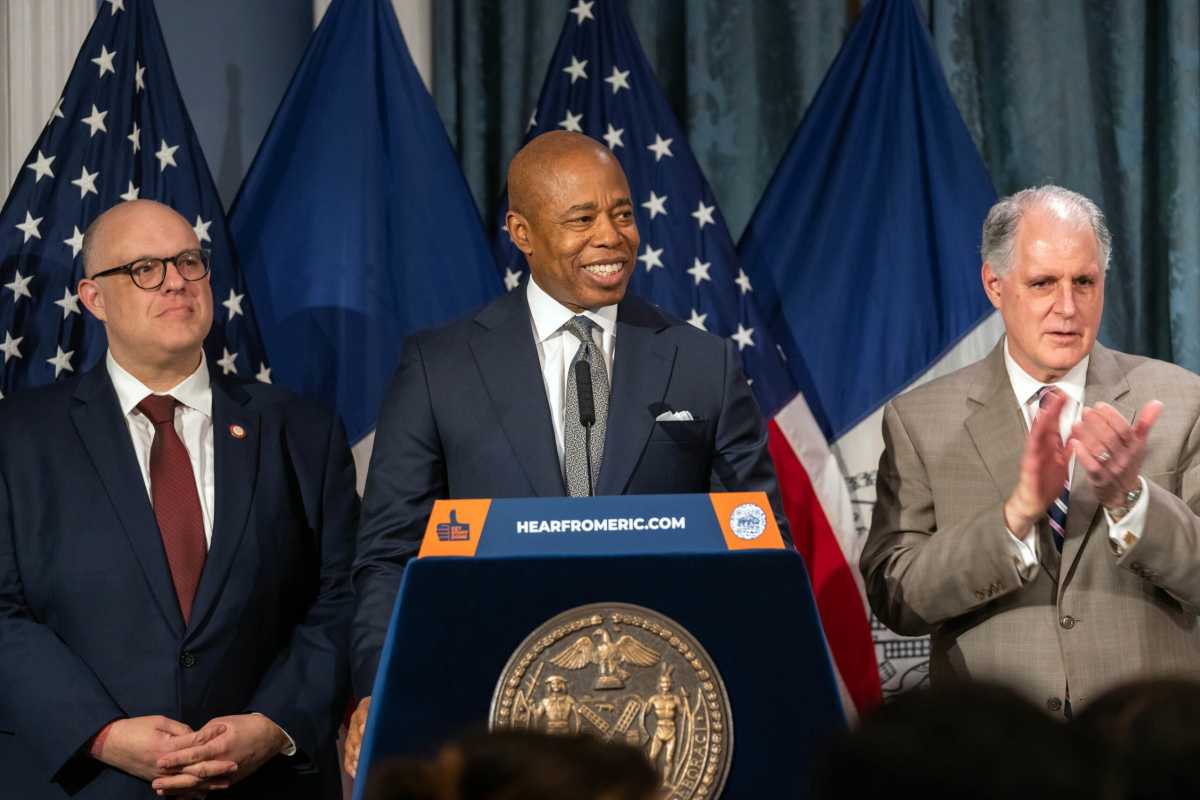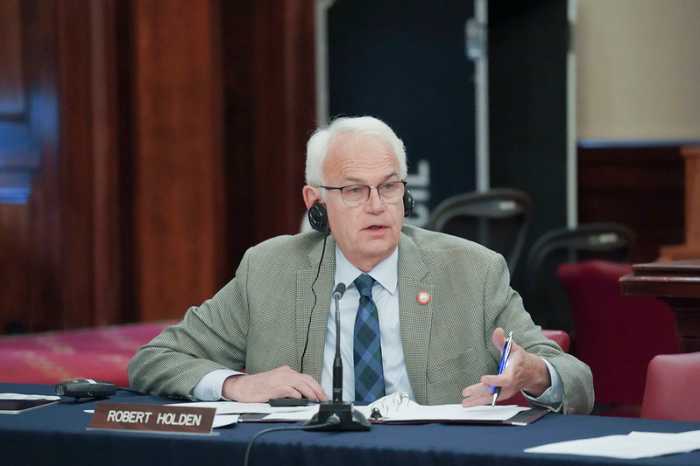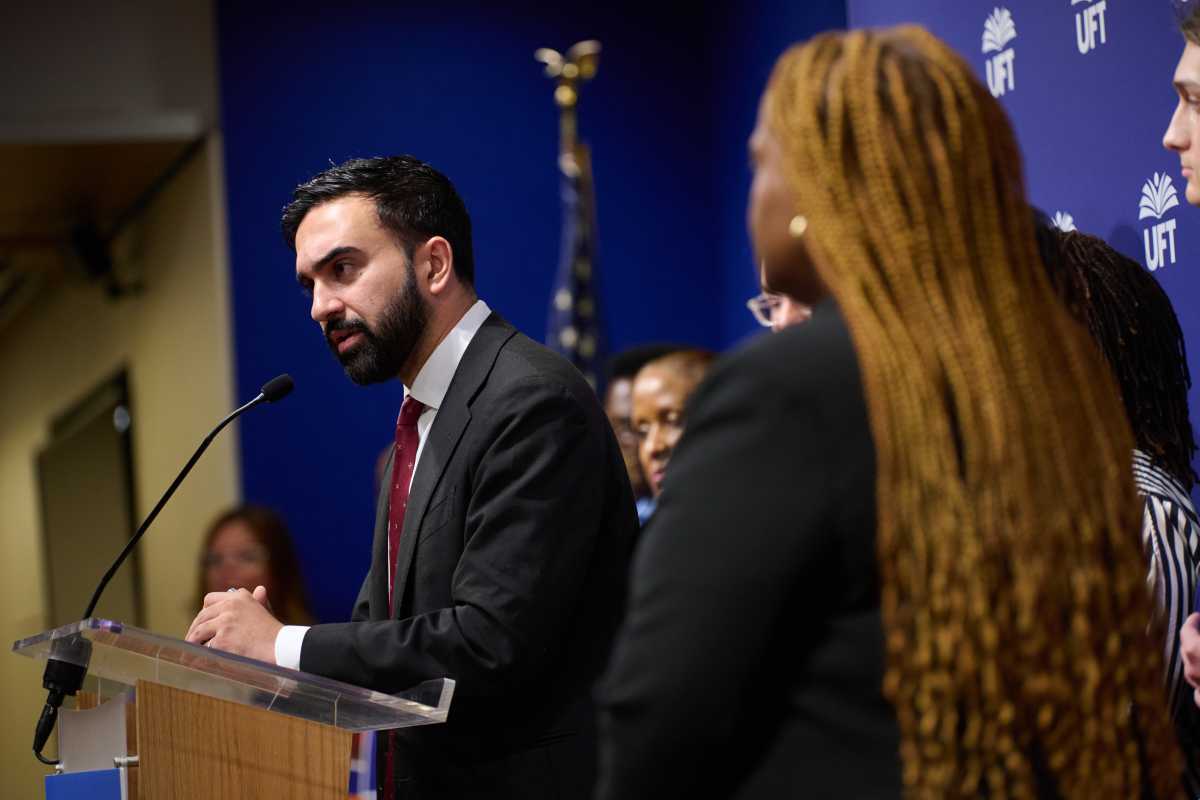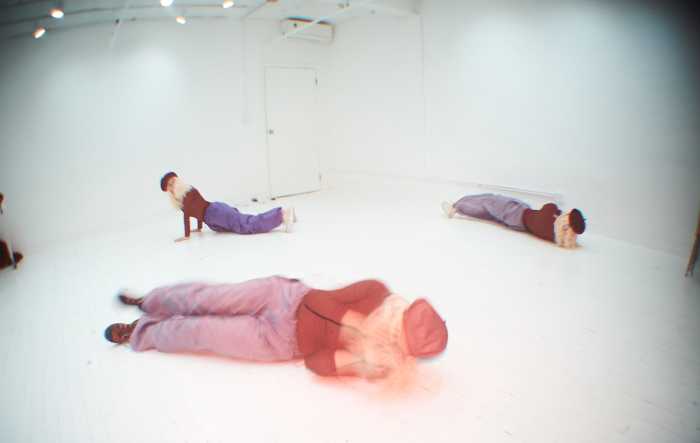Earlier this month, Councilman James Gennaro watched as Mayor Eric Adams signed his historic legislation, which will phase out the use of fuel oil grade no. 4 by 2027.
His bill, Intro 470-A, was passed last month. It will improve air quality and public health by reducing emissions of particulate matter, oxides of nitrogen, sulfur dioxide, and carbon dioxide. The city expects the legislation to help prevent premature deaths, respiratory and cardiac hospitalizations, and asthma emergency room visits.
“With this bill, the city will accelerate the phase-out and end forever the use of fuel oil no. 4, which is the most polluting oil still being burned in our city,” Gennaro said. This expedited phase-out will prevent the emission of thousands of tons of noxious air pollutants. This law will dramatically improve [air quality] in our city — especially around hundreds of New York City public schools — and increase respiratory health and save lives.”
He added that the new law fast-tracks the 2030 deadline for private and public buildings established by Local Law 38 in 2015. The Mayor noted that nearly 72% of the buildings that use fuel oil no. 4 are in communities facing environmental injustice.
“Too often, people of color in low-income communities suffer the most from pollution and climate change,” Adams said. “This bill addresses these disparities and helps improve the air quality for all New Yorkers.”
Gennaro also revealed that the portfolio of his Committee on Environmental Protection had been expanded to include the responsibilities of the former Committee on Resiliency and Waterfronts.
The panel’s new name will be the Committee on Environmental Protection, Resiliency and Waterfronts; the consolidation of the two committees will streamline the process of developing environmental and resilience policies and preparedness in the face of potential flooding, sea-level rise, and extreme weather events.
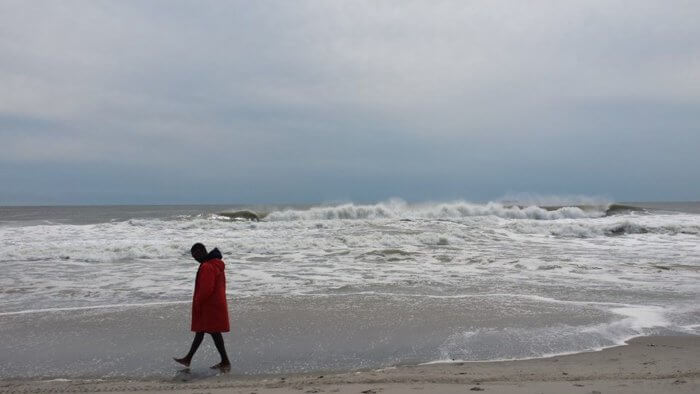
Gennaro, a geologist and environmental scientist, will continue to lead the newly expanded committee.
“I am confident that the move to merge these two committees will benefit the Council’s ability to deal more effectively with all of New York City’s environmental resiliency and waterfront challenges, which intersect and overlap,” Gennaro said. “My expertise as an environmental scientist, combined with my decades of experience in environmental policy, will allow me to lead this newly expanded committee equipped with the knowledge and partnerships to protect the city’s coastal areas.”

